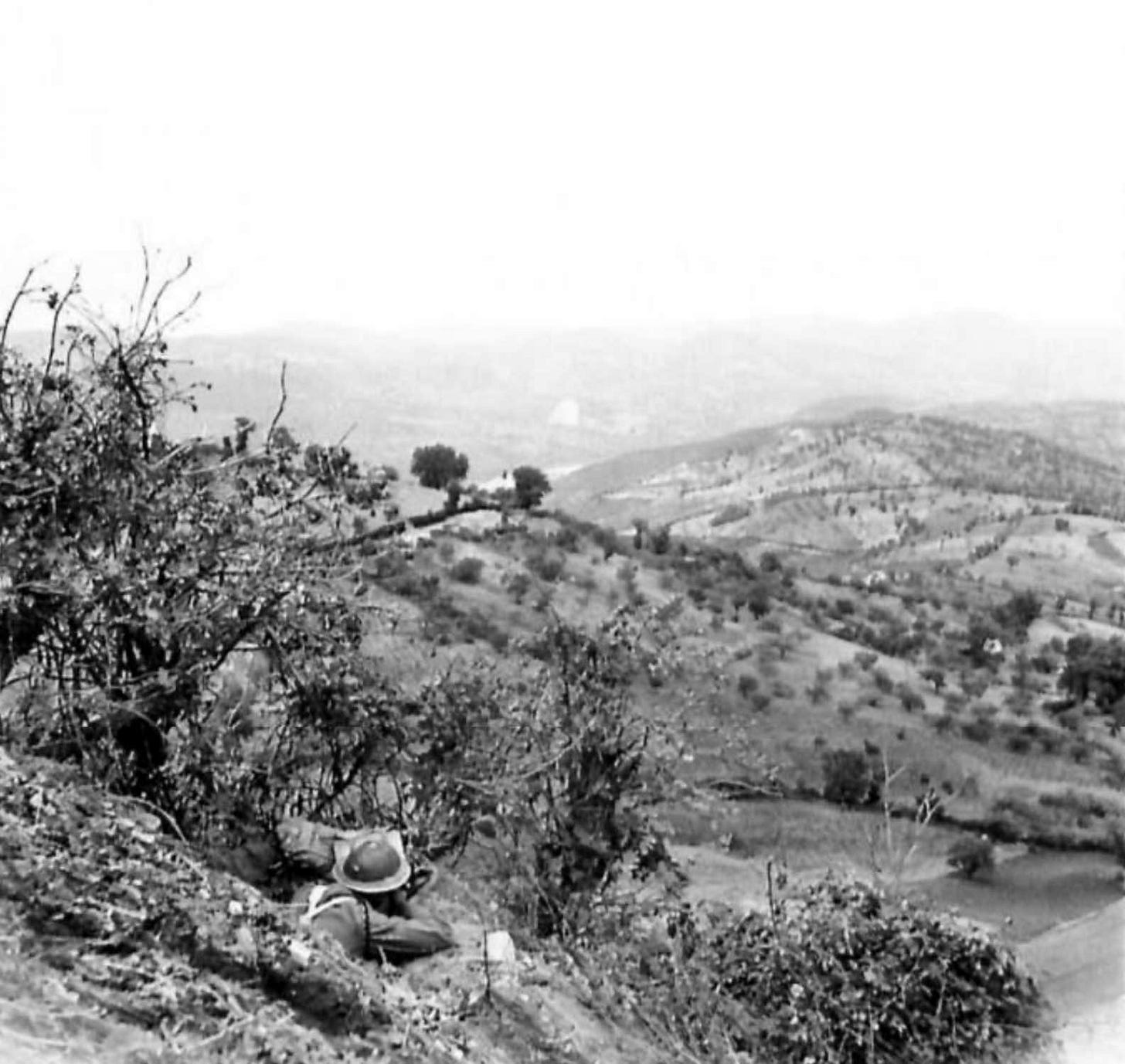In the trenches in Italy
26th October 1943: An infantry officer's letter home describes the personal impact of life on the front line with searing honesty

The experience of trench warfare was now becoming a common one in Italy. Each man had to deal with the constant threat of shellfire, the discomforts of trench life in the open, and the probing of enemy patrols. Men reacted differently, as differently as Spike Milligan treating the war as an absurdity or Audie Murphy, the hard-minded infantryman. They were writing sometime after the event, with the expectation of publication.
This morning, a German patrol tried to enter our area. Our forward post opened fire on them and they went to ground.
This is another perspective on how men felt in these circumstances, a revealing personal account that was written at the time, with no thought to publication at the time it was written. An Australian in the Irish Brigade of the British Army, Major Lawrence Franklyn-Vaile1 of 1 Royal Irish Fusiliers (“the Faughs”) was writing to his wife at home:
26.10.43
Dearest Olive,
I am writing this sitting on the edge of a slit trench in a wood ready to dive into it at any second if any artillery shell bursting is at hand. It has been a grim few days since I last wrote. The first day we marched 20 miles, then at night marched another 10, and dug in before daybreak. In the afternoon, we marched another 12 miles, fought a battle at night, dug in, moved in the morning, dug in again, moved and re-dug.
Since then, we have been under constant shelling from the Germans. The worst part of being shelled is the feeling of utter impotence and, after a time, combined with total lack of sleep and very little food, it has an extremely wearying effect on the nerves.



